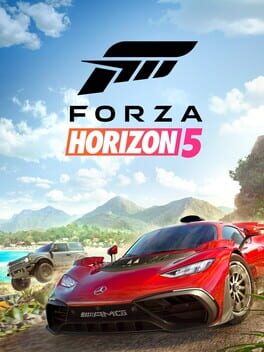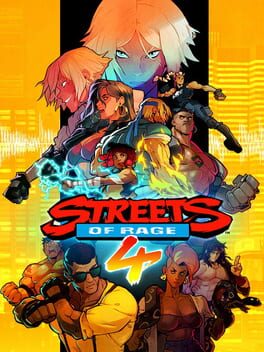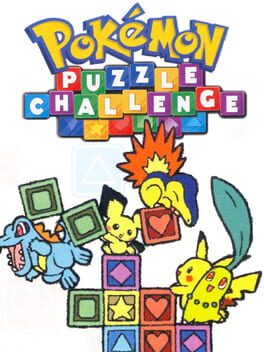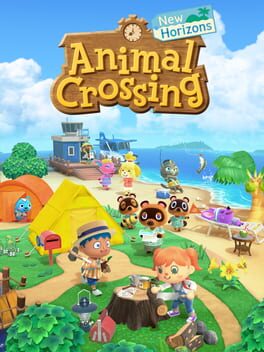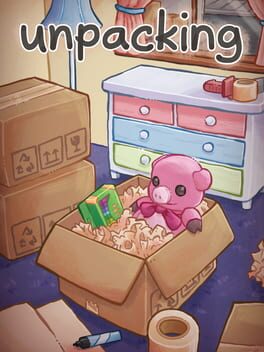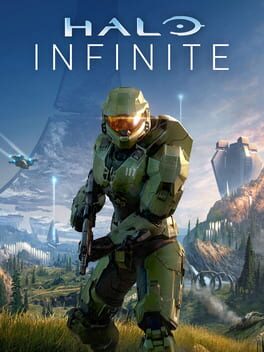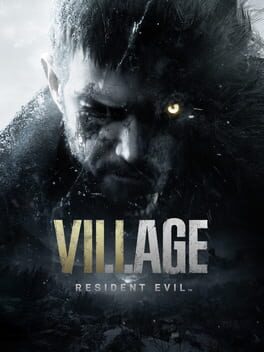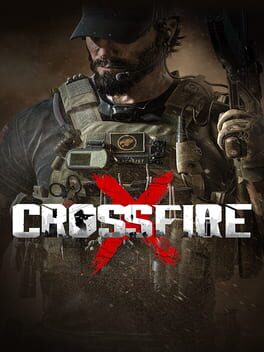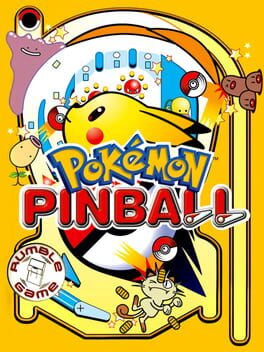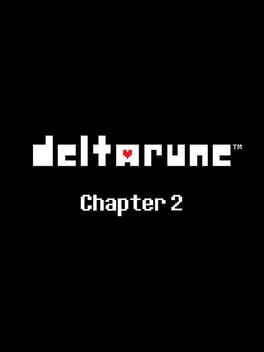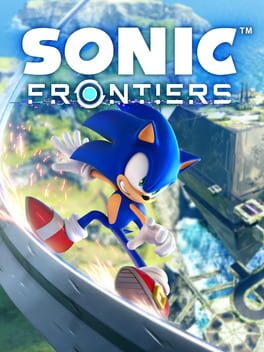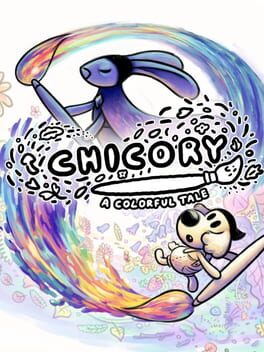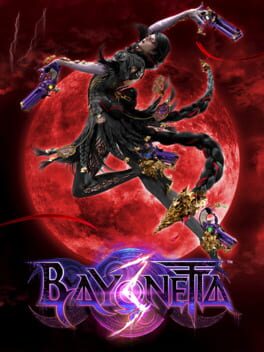Bigg
2021
Going into Horizon 5, I had a bit of a concern that this would be the game where I finally get tired of the Forza Horizon formula. I’ve already put 80+ hours each into FH3 and 4, and while I knew Playground Games was more than capable of creating another…uh… playground to futz around in, I was afraid that I just simply had my fill of this sort of game. At some point I’d have to get bored of open world driving, right?
However, after an hour of Forza Horizon, 5, I already had my answer: haha, nope! This series still fucking rules!
I adore arcade-style racers but could never get into sims, and to this day I think the Horizon series is the only racing series I’ve played that somehow found the mythical “middle-ground” between arcade mechanics and sim racers that truly feels accessible to everyone regardless of their particular taste in racing games. Also, FH5’s Mexico is possibly the best designed open world of the three Horizon’s I’ve played, providing tons of variety from city streets to steep mountains to rugged dirt terrain. It's also just exploding at the brims with content - I've already put at least a couple dozen hours in and it feels like I haven't scratched the surface.
I often play games as a way to get my mind off of things, but rarely can I find a game that genuinely just makes me relax and vibe with the world the same way a Forza Horizon game does. Something about the game’s beautiful vistas and rock-solid controls just come together in a way that I can drive in a straight line at 150 mph for 20 minutes straight and not get bored of it. Also, there is just something inherently funny about being able to drive my dad’s old Volvo station wagon around an active volcano.
However, after an hour of Forza Horizon, 5, I already had my answer: haha, nope! This series still fucking rules!
I adore arcade-style racers but could never get into sims, and to this day I think the Horizon series is the only racing series I’ve played that somehow found the mythical “middle-ground” between arcade mechanics and sim racers that truly feels accessible to everyone regardless of their particular taste in racing games. Also, FH5’s Mexico is possibly the best designed open world of the three Horizon’s I’ve played, providing tons of variety from city streets to steep mountains to rugged dirt terrain. It's also just exploding at the brims with content - I've already put at least a couple dozen hours in and it feels like I haven't scratched the surface.
I often play games as a way to get my mind off of things, but rarely can I find a game that genuinely just makes me relax and vibe with the world the same way a Forza Horizon game does. Something about the game’s beautiful vistas and rock-solid controls just come together in a way that I can drive in a straight line at 150 mph for 20 minutes straight and not get bored of it. Also, there is just something inherently funny about being able to drive my dad’s old Volvo station wagon around an active volcano.
2020
I went into this fairly blind, having only played very little of the Genesis SoR games, but hey - this is pretty dang fun!
Beat-em-ups have a reputation of being shallow and boring, but this game gets around that by having a combo-heavy combat system that encourages finding a rhythm, not unlike a character action game. And the the characters are extremely varied, ranging from pure rushdown (Cherry) to being more methodical (Floyd).
The difficulty can get a bit uneven, and it loses a little steam near the end, but overall definitely recommended.
Shit, now I wanna play Guardian Heroes again.
Beat-em-ups have a reputation of being shallow and boring, but this game gets around that by having a combo-heavy combat system that encourages finding a rhythm, not unlike a character action game. And the the characters are extremely varied, ranging from pure rushdown (Cherry) to being more methodical (Floyd).
The difficulty can get a bit uneven, and it loses a little steam near the end, but overall definitely recommended.
Shit, now I wanna play Guardian Heroes again.
I revisited this game for the first time in at least 15 years when I got my Analogue Pocket and I swear this is the most underrated Panel De Pon/Puzzle League installment.
The fact that IntSys managed to make a Puzzle League game on the Game Boy Color that feels nearly identical gameplay-wise compared to the console games is a colossal achievement (especially compared to Game Boy Tetris Attack). Nothing about the moment-to-moment gameplay feels compromised at all. And I love how vibrant the game is - the Analogue Pocket really makes this game's visuals shine through.
The only real change from the console versions is that you don't actually see your opponent's field in Challenge mode but it plays functionally the same - fend off the opponent's garbage attacks long enough to defeat them. I'm not someone who ever really looked at my opponent's playing field in Puzzle League anyway, so this never really bothered me.
My only real complaint with this game is that some of the character unlocks feel downright unreasonable. I'm supposed to get 100,000 on Garbage mode to unlock Magby??? How???? I can only get to level 50 or so in Garbage and even then my score is like 25000 or something.
Anyway, game's good. Revisiting this game honestly makes me glad I bought an Analogue Pocket.
The fact that IntSys managed to make a Puzzle League game on the Game Boy Color that feels nearly identical gameplay-wise compared to the console games is a colossal achievement (especially compared to Game Boy Tetris Attack). Nothing about the moment-to-moment gameplay feels compromised at all. And I love how vibrant the game is - the Analogue Pocket really makes this game's visuals shine through.
The only real change from the console versions is that you don't actually see your opponent's field in Challenge mode but it plays functionally the same - fend off the opponent's garbage attacks long enough to defeat them. I'm not someone who ever really looked at my opponent's playing field in Puzzle League anyway, so this never really bothered me.
My only real complaint with this game is that some of the character unlocks feel downright unreasonable. I'm supposed to get 100,000 on Garbage mode to unlock Magby??? How???? I can only get to level 50 or so in Garbage and even then my score is like 25000 or something.
Anyway, game's good. Revisiting this game honestly makes me glad I bought an Analogue Pocket.
I love Animal Crossing. And this is more Animal Crossing!
More importantly, the quality of life changes this game made from New Leaf are extremely welcome - you can move around houses! You can actually mail letters and gifts from your airport! You can terraform your island! Setting up sidewalks isn't a nightmare anymore!
Having said that, there's still a few things I miss, like the minigame island, or Roost's cafe, or some of the special villagers like Blanca and Katie. Hopefully that stuff gets added in updates.
More importantly, the quality of life changes this game made from New Leaf are extremely welcome - you can move around houses! You can actually mail letters and gifts from your airport! You can terraform your island! Setting up sidewalks isn't a nightmare anymore!
Having said that, there's still a few things I miss, like the minigame island, or Roost's cafe, or some of the special villagers like Blanca and Katie. Hopefully that stuff gets added in updates.
2021
This is one of those games that completely snuck up on me but immediately fell in love with. Beyond the zen-like satisfaction of properly organizing a living space, it also has some of the best storytelling of any game I played this year.
While I never met the main character in Unpacking, I learned so much about her life and her interests through each scene, from her first bedroom to her first house. I deeply sympathized when it was clear she went through a messy (but necessary) breakup and cheered her on when she resolved to move into a new apartment and get a fresh start (even if she couldn’t afford a couch and used bean bags instead). Also, true to life, I could never figure out where to put the fucking colander.
Unpacking is one of those games I love watching other people play because while the game itself is relatively short (4 to 5 hours), it is also remarkably dense with how many details and Easter eggs are laid out throughout, and it’s unlikely you’ll see everything in a single playthrough. The game’s achievements encourage you to explore and experiment with various placements to see all the possible options. It’s a game where you can just tell how much passion was put into it because of its intricacies, and I think that’s far more valuable to me than any complaint I might have about the length.
While I never met the main character in Unpacking, I learned so much about her life and her interests through each scene, from her first bedroom to her first house. I deeply sympathized when it was clear she went through a messy (but necessary) breakup and cheered her on when she resolved to move into a new apartment and get a fresh start (even if she couldn’t afford a couch and used bean bags instead). Also, true to life, I could never figure out where to put the fucking colander.
Unpacking is one of those games I love watching other people play because while the game itself is relatively short (4 to 5 hours), it is also remarkably dense with how many details and Easter eggs are laid out throughout, and it’s unlikely you’ll see everything in a single playthrough. The game’s achievements encourage you to explore and experiment with various placements to see all the possible options. It’s a game where you can just tell how much passion was put into it because of its intricacies, and I think that’s far more valuable to me than any complaint I might have about the length.
2021
It’s easy to forget just how ubiquitous Halo was a decade ago. If you owned an Xbox 360, there was about a 90% chance you also owned Halo 3. The game’s release was truly an event. Every single friend I know who played games had it. And…I liked it! But, outside of the excellent campaign of Halo Reach (which is still the best single player Halo, and no I will not be taking questions at this time), I never quite adored the series as much as others did.
And then time passed, and Halo just…kind of vanished into the periphery. 343’s installments being so polarizing meant I wasn’t as enthused to try them, and none of my friends were playing the multiplayer either. So, with Infinite being poised as the grand return to the Halo people remember, I was interested but skeptical.
But the second I played the first multiplayer beta, it felt like riding a bike. There is something strangely calming about the Halo combat flowchart — throw a grenade, shoot down the opponent with the assault rifle, switch to pistol if needed, rinse and repeat. It’s reliable, it feels good, and is easy to pick up. Unlike with 4 and 5, 343 didn’t try to fix anything that wasn’t broken, and the stuff they did add, such as the grappling hook, enhances what’s already there instead of feeling like it overshadows the core mechanics.
I feel similarly about the campaign — forgettable story aside, Infinite’s single player is exactly what I imagined an open world Halo to look and feel like. The firefights are tense and engaging enough that I actively seek out outposts to claim, and many of the campaign missions being in constrained indoor complexes balances out the open-ended mountainsides of ̶r̶u̶r̶a̶l̶ ̶W̶a̶s̶h̶i̶n̶g̶t̶o̶n̶ ̶S̶t̶a̶t̶e̶ Zeta Halo. If this came out immediately after Reach I might have been too tired by the formula to get into it, but since its been such a long time since I’ve played one of these games, it’s nice to remember why I enjoyed the series to begin with.
And then time passed, and Halo just…kind of vanished into the periphery. 343’s installments being so polarizing meant I wasn’t as enthused to try them, and none of my friends were playing the multiplayer either. So, with Infinite being poised as the grand return to the Halo people remember, I was interested but skeptical.
But the second I played the first multiplayer beta, it felt like riding a bike. There is something strangely calming about the Halo combat flowchart — throw a grenade, shoot down the opponent with the assault rifle, switch to pistol if needed, rinse and repeat. It’s reliable, it feels good, and is easy to pick up. Unlike with 4 and 5, 343 didn’t try to fix anything that wasn’t broken, and the stuff they did add, such as the grappling hook, enhances what’s already there instead of feeling like it overshadows the core mechanics.
I feel similarly about the campaign — forgettable story aside, Infinite’s single player is exactly what I imagined an open world Halo to look and feel like. The firefights are tense and engaging enough that I actively seek out outposts to claim, and many of the campaign missions being in constrained indoor complexes balances out the open-ended mountainsides of ̶r̶u̶r̶a̶l̶ ̶W̶a̶s̶h̶i̶n̶g̶t̶o̶n̶ ̶S̶t̶a̶t̶e̶ Zeta Halo. If this came out immediately after Reach I might have been too tired by the formula to get into it, but since its been such a long time since I’ve played one of these games, it’s nice to remember why I enjoyed the series to begin with.
As someone who generally avoids taking huge risks and will never, ever skydive, people are generally surprised when I tell them I love roller coasters. As long as there are proper safety measures and obvious direction, I enjoy being scared senseless and riding that endorphin high every once in a while (By the way, Jurassic World VelociCoaster? It’s dope!). Resident Evil Village feels like the video game equivalent of an excellent roller coaster. More than that, it feels like a well-designed amusement park.
Each part of the game feels like it caters to a specific kind of excitement — you have your classic thrill rides, the spooky haunted house, the unpredictable water rapids, etc. Each section lasts just long enough to not outstay its welcome, and while it stays linear the entire time, it didn’t bother me one bit because I felt like I was going through an intense hand-crafted experience with plenty of jumps and twists. The game certainly isn’t always scary, but its always tense, and I was always excited to see what curveball it was going to throw at me next. And the biggest complaint I had about RE 7 — the janky shooting — is at least somewhat remedied by having a tremendously satisfying shotgun.
Also, like any good amusement park, it’s one I’ll want to revisit — albeit maybe not until they add another ride in the form of DLC
(Bet you didn't think I was gonna keep that analogy going for the entire review, huh)
Each part of the game feels like it caters to a specific kind of excitement — you have your classic thrill rides, the spooky haunted house, the unpredictable water rapids, etc. Each section lasts just long enough to not outstay its welcome, and while it stays linear the entire time, it didn’t bother me one bit because I felt like I was going through an intense hand-crafted experience with plenty of jumps and twists. The game certainly isn’t always scary, but its always tense, and I was always excited to see what curveball it was going to throw at me next. And the biggest complaint I had about RE 7 — the janky shooting — is at least somewhat remedied by having a tremendously satisfying shotgun.
Also, like any good amusement park, it’s one I’ll want to revisit — albeit maybe not until they add another ride in the form of DLC
(Bet you didn't think I was gonna keep that analogy going for the entire review, huh)
2022
NOTE: I did not play the multiplayer because I had zero interest in it. These comments/my score are only in reference to the first SP campaign, Operation Catalyst.
I was actually one of the few people interested in this game for a couple reasons - I love Remedy, and I have a soft spot for CoD style campaigns (minus the blatant pro-American-military propaganda CoD has become more and more of over time).
My brother and I played this at around the same time and came to literally the same conclusion - I don't think this is a 3/10 like IGN said (and I think their views of the campaign were colored by their very negative MP experience). But it's not very good either. It's just kinda...there.
What I played of the campaign follows a pretty standard CoD-esque formula - lots of ambushes, dramatic slo-mo, some character swapping for specific moments. The game looks fine, but the weirdest thing is that the controls and shooting feel like they all suffer from a half second of input delay. I was eventually able to adjust to it but it feels weirdly clunky compared to Control. The story is generic and sadly doesn't have anywhere near the amount of Remedy Weirdness (TM) that the trailers teased.
I don't think this game is an offensive blemish on Remedy's gameography like it's being made out to be but it's also not anything special and feels like mercenary work the team did to fund more Control and Alan Wake games. Unless you're really in the mood for some CoD style shooting, it's a safe skip.
I was actually one of the few people interested in this game for a couple reasons - I love Remedy, and I have a soft spot for CoD style campaigns (minus the blatant pro-American-military propaganda CoD has become more and more of over time).
My brother and I played this at around the same time and came to literally the same conclusion - I don't think this is a 3/10 like IGN said (and I think their views of the campaign were colored by their very negative MP experience). But it's not very good either. It's just kinda...there.
What I played of the campaign follows a pretty standard CoD-esque formula - lots of ambushes, dramatic slo-mo, some character swapping for specific moments. The game looks fine, but the weirdest thing is that the controls and shooting feel like they all suffer from a half second of input delay. I was eventually able to adjust to it but it feels weirdly clunky compared to Control. The story is generic and sadly doesn't have anywhere near the amount of Remedy Weirdness (TM) that the trailers teased.
I don't think this game is an offensive blemish on Remedy's gameography like it's being made out to be but it's also not anything special and feels like mercenary work the team did to fund more Control and Alan Wake games. Unless you're really in the mood for some CoD style shooting, it's a safe skip.
2023
I've struggled with what to write about this game for a while because I have mixed opinions on remakes. On one hand, I'd rather there be more original ideas in gaming than recycled versions of old ones. However, if every remake was as good as the Resident Evil 4 remake, I don't think I'd have a issue playing any of them.
A lot of people argue RE4 didn't have to be remade, and I do think the original still stands on its own. Having said that, I think RE4 absolutely benefits from a more modern control scheme, and the developers were clearly very careful to not drastically change the parts of RE4 everyone loved (the village) and instead tweaked the parts of the game that were generally less liked (the castle and the island). Re4make does an excellent job of reminding you why the original RE4 was so good while sanding down the parts that haven't aged as well, and I don't think there's a better way to remake a game like this.
When I was 15, I remember playing RE4 at my parents house on a tiny CRT TV. I got to the boss fight against Mendez (aka The Village Chief), and once I saw the entire farmhouse engulfed in flames, I remember being amazed that a game could look this good. Flash foward to this year - I'm 33, playing RE4make at my own place in 4K, and during the Mendez fight I'm just as amazed at the setpiece as I was when I played the original over 15 years ago. The fact that Capcom was able to replicate the same feelings I had with the original but with modern visuals and presentation is an enormous accomplishment that shouldn't be understated.
A lot of people argue RE4 didn't have to be remade, and I do think the original still stands on its own. Having said that, I think RE4 absolutely benefits from a more modern control scheme, and the developers were clearly very careful to not drastically change the parts of RE4 everyone loved (the village) and instead tweaked the parts of the game that were generally less liked (the castle and the island). Re4make does an excellent job of reminding you why the original RE4 was so good while sanding down the parts that haven't aged as well, and I don't think there's a better way to remake a game like this.
When I was 15, I remember playing RE4 at my parents house on a tiny CRT TV. I got to the boss fight against Mendez (aka The Village Chief), and once I saw the entire farmhouse engulfed in flames, I remember being amazed that a game could look this good. Flash foward to this year - I'm 33, playing RE4make at my own place in 4K, and during the Mendez fight I'm just as amazed at the setpiece as I was when I played the original over 15 years ago. The fact that Capcom was able to replicate the same feelings I had with the original but with modern visuals and presentation is an enormous accomplishment that shouldn't be understated.
1999
I’ll be frank here: I think pinball gets a bad rap. I’ve seen a bunch of reviews of this game on Backloggd where people talk about how much they love this game but only give it a 3.5/5, and I don’t really get it. I think there’s a bit of a stigma behind pinball where it’s considered too shallow or simplistic to compete with other genres, and I simply don’t think that’s true at all. Pinball, when it’s done right, can be an exhilarating game of timing and precision.
Having said that, I think a lot of pinball video games aren’t very good compared to the real thing. The problem is simple - pinball is really hard! It’s no secret that arcade machines are difficult on purpose to drain all the spare change in your pockets. But any time a pinball video game tweaks the physics to make the game easier, it just doesn’t feel right to me. It’s kind of like when some console FPSes have such generous auto-aim that you can be looking in another direction and aiming down sights will still lock you on to the closest enemy’s head.
I think Pokemon Pinball rectifies this problem with a surprisingly effective compromise - keep the physics similar to real pinball but provide generous “Ball Saver” periods during catch and evolution events so novice and intermediate players still have a chance. It’s still reasonably difficult without feeling horribly unforgiving like physical pinball is a lot of the time. And the progression is compelling! The better you do, the rarer Pokémon you can catch, and, well…we all know you gotta catch em all.
So basically what I’m saying is that Pokémon Pinball is more than just a very good pinball game, it’s a very good video game, period.
Having said that, I think a lot of pinball video games aren’t very good compared to the real thing. The problem is simple - pinball is really hard! It’s no secret that arcade machines are difficult on purpose to drain all the spare change in your pockets. But any time a pinball video game tweaks the physics to make the game easier, it just doesn’t feel right to me. It’s kind of like when some console FPSes have such generous auto-aim that you can be looking in another direction and aiming down sights will still lock you on to the closest enemy’s head.
I think Pokemon Pinball rectifies this problem with a surprisingly effective compromise - keep the physics similar to real pinball but provide generous “Ball Saver” periods during catch and evolution events so novice and intermediate players still have a chance. It’s still reasonably difficult without feeling horribly unforgiving like physical pinball is a lot of the time. And the progression is compelling! The better you do, the rarer Pokémon you can catch, and, well…we all know you gotta catch em all.
So basically what I’m saying is that Pokémon Pinball is more than just a very good pinball game, it’s a very good video game, period.
2021
Undertale is a game that is easily one of my favorite games ever, but when I played the first chapter of the companion piece/follow-up (but not a sequel) Deltarune a few years ago, I thought it was…fine. I certainly enjoyed the characters and Toby’s trademark humor, but I didn’t quite understand why this game needed to exist separate from Undertale. But now, with Chapter 2, I finally get it. And I’m incredibly fascinated to see where things go from here.
Part of what made Undertale work so well is that it defied genre conventions by having you, as the player, truly influence every aspect of the story in a way that most games didn’t even try to attempt. One would assume that a sequel or follow up would follow suit, but instead, Deltarune actively does not want the player to make choices for the main character, Kris (and in some cases, tries to prevent you from doing so). Deltarune is Kris’s story, not yours. This reversal succeeds in making the player feel helpless at times, and provides the other side of the coin to Undertale’s themes — while there are many times in life where your choices have consequences, there’s also times where you can’t change much of anything, and those moments matter too.
Having said all that, this is only chapter 2 of 7 (????), so maybe later chapters will be different. But every aspect of Deltarune’s design feels made to tell the player that they’re not in charge this time. And that’s an inspired decision that now makes me glad this game isn’t Undertale 2.
Also, Queen and Spamton are two of the funniest video game characters in years and it amazes me how constantly Toby Fox can leave me cackling like a doofus through constant uses of stock explosion and splat sounds.
Part of what made Undertale work so well is that it defied genre conventions by having you, as the player, truly influence every aspect of the story in a way that most games didn’t even try to attempt. One would assume that a sequel or follow up would follow suit, but instead, Deltarune actively does not want the player to make choices for the main character, Kris (and in some cases, tries to prevent you from doing so). Deltarune is Kris’s story, not yours. This reversal succeeds in making the player feel helpless at times, and provides the other side of the coin to Undertale’s themes — while there are many times in life where your choices have consequences, there’s also times where you can’t change much of anything, and those moments matter too.
Having said all that, this is only chapter 2 of 7 (????), so maybe later chapters will be different. But every aspect of Deltarune’s design feels made to tell the player that they’re not in charge this time. And that’s an inspired decision that now makes me glad this game isn’t Undertale 2.
Also, Queen and Spamton are two of the funniest video game characters in years and it amazes me how constantly Toby Fox can leave me cackling like a doofus through constant uses of stock explosion and splat sounds.
2022
What a bizarre game. If I could give it a 7.5/10 I would, but I ultimately enjoyed my time with it so I'm going to round up.
I should probably be clear from the start that I'm a Sonic fan, and I've been a Sonic fan since I was a kid. I think the series has had an incredibly bumpy trajectory and I really wasn't sure what to make of this game based on pre-release footage. The funny thing is that I've put 20 hours into it and I'm still not sure what to make of it.
I could write a whole laundry list of the game's notable issues: The texture pop in is atrocious. There's a lot of repetitive collecting to pad out the game time and encourage you to explore the whole open world. The cyberspace levels, while fine, are mostly just slightly-reworked versions of stages from previous Sonic games.
And yet, despite all that, I kept wanting to play more of it. And I think it really comes down to one thing - Sonic as a character is perfect for an open world setting. I never got bored of zipping and zooming around the (surprisingly big) open world maps, and enjoyed the frequent bite-sized platforming challenges. I think traversal is really the key to my enjoyment of an open world game, and Frontiers absolutely nails it.
While the actual story of the game was pretty forgettable in my opinion, I'm glad they got IDW comics writer Ian Flynn to work on this game because the character moments between Sonic and his friends are incredibly charming and have definitely been missing from the games for a long time now. I love seeing Sonic and Knuckles as friends who constantly try to one-up each other for fun, or Sonic acting as an older brother to Tails and telling him that he's never seen him as a burden.
The combat is...fine, I didn't love it but I didn't hate it. The boss fights deliver on the kind of over-the-top spectacle you want from a Super Sonic boss fight and I'm glad they didn't skimp on them.
If you're not already a Sonic fan, I doubt this game is going to make you a convert. But hey, if going really really fast in an open world sounds cool to you, I'd recommend getting this on sale. The game absolutely has issues but the core gameplay loop totally works and I'm genuinely excited to see what a sequel to Frontiers will look like.
I should probably be clear from the start that I'm a Sonic fan, and I've been a Sonic fan since I was a kid. I think the series has had an incredibly bumpy trajectory and I really wasn't sure what to make of this game based on pre-release footage. The funny thing is that I've put 20 hours into it and I'm still not sure what to make of it.
I could write a whole laundry list of the game's notable issues: The texture pop in is atrocious. There's a lot of repetitive collecting to pad out the game time and encourage you to explore the whole open world. The cyberspace levels, while fine, are mostly just slightly-reworked versions of stages from previous Sonic games.
And yet, despite all that, I kept wanting to play more of it. And I think it really comes down to one thing - Sonic as a character is perfect for an open world setting. I never got bored of zipping and zooming around the (surprisingly big) open world maps, and enjoyed the frequent bite-sized platforming challenges. I think traversal is really the key to my enjoyment of an open world game, and Frontiers absolutely nails it.
While the actual story of the game was pretty forgettable in my opinion, I'm glad they got IDW comics writer Ian Flynn to work on this game because the character moments between Sonic and his friends are incredibly charming and have definitely been missing from the games for a long time now. I love seeing Sonic and Knuckles as friends who constantly try to one-up each other for fun, or Sonic acting as an older brother to Tails and telling him that he's never seen him as a burden.
The combat is...fine, I didn't love it but I didn't hate it. The boss fights deliver on the kind of over-the-top spectacle you want from a Super Sonic boss fight and I'm glad they didn't skimp on them.
If you're not already a Sonic fan, I doubt this game is going to make you a convert. But hey, if going really really fast in an open world sounds cool to you, I'd recommend getting this on sale. The game absolutely has issues but the core gameplay loop totally works and I'm genuinely excited to see what a sequel to Frontiers will look like.
There are a couple of moments in Chicory that I’ll probably remember the rest of my life, and I feel the need to discuss what they are below. This includes some light story spoilers for the first half of the game (no major plot twists or anything, though), so if you already know you’re going to play this game, you might want to skip to the end of the Minor Spoiler Zone below.
MINOR SPOILER ZONE
Relatively earlier in the game, your character, Pizza, asks her idol, legendary painter Chicory, to draw her portrait. Chicory obliges but says she’ll only do it if you draw her first. At this point, you’re prompted to draw Chicory. I’ve certainly never been great at drawing, but I genuinely tried my best. And my best looked like a bunch of childish scribbles.
Regardless of what you draw, Chicory is impressed, and then draws you, and what she draws is…well, excellent. Far better than anything the player could’ve done. And that moment hit me like a dagger to the heart. Because I’ve had this feeling before. This feeling that I’m just trash at what I do, and I’ll never measure up to others. That I made it as far as I have in my field through luck and a nice smile. That feeling that my friends and family clearly think I’m more clever and more talented than I actually am, because it’s not like I’m particularly good at anything.
And then I realized that was the point of this entire segment. It’s obvious that Greg Lobanov, the creator of Chicory, has had the same feeling. And so have literally millions of other people.
Later on, you find the portrait you drew hung in Chicory’s room. Ultimately, it doesn’t quite matter how you felt about it, because it’s obvious Chicory loved it regardless.
OKAY IT’S SAFE NOW
If I can describe 2021 in a single word, it would be exhausting. Not always bad, and not always good, but always exhausting. Having spent too much time in isolation and repetition, it’s been too easy for me to get lost in my own thoughts. Particularly the ones where I start to wonder if I can keep up whatever façade I’ve built to make people like me.
Then I played Chicory, and realized what should have been obvious to me all along. These feelings were never just mine.
Chicory is a game about how everyone has struggles that they deal with in private, even those who seem to be basically perfect. And while it’s natural to want to keep your pain to yourself and hide it, there’s more people than you think who understand and truly want to help. And they have their own struggles, too.
While Chicory’s adorable aesthetic, whimsical music, and clever Zelda-style puzzle solving are all strong points in its favor, what really made it so memorable for me was the writing. Sometimes you play the right game at the right time and then it’s all you can think about. For me, that was Chicory.
Also the game encourages you to name Pizza after your favorite food. So for me, she’ll always be Dumplings.
MINOR SPOILER ZONE
Relatively earlier in the game, your character, Pizza, asks her idol, legendary painter Chicory, to draw her portrait. Chicory obliges but says she’ll only do it if you draw her first. At this point, you’re prompted to draw Chicory. I’ve certainly never been great at drawing, but I genuinely tried my best. And my best looked like a bunch of childish scribbles.
Regardless of what you draw, Chicory is impressed, and then draws you, and what she draws is…well, excellent. Far better than anything the player could’ve done. And that moment hit me like a dagger to the heart. Because I’ve had this feeling before. This feeling that I’m just trash at what I do, and I’ll never measure up to others. That I made it as far as I have in my field through luck and a nice smile. That feeling that my friends and family clearly think I’m more clever and more talented than I actually am, because it’s not like I’m particularly good at anything.
And then I realized that was the point of this entire segment. It’s obvious that Greg Lobanov, the creator of Chicory, has had the same feeling. And so have literally millions of other people.
Later on, you find the portrait you drew hung in Chicory’s room. Ultimately, it doesn’t quite matter how you felt about it, because it’s obvious Chicory loved it regardless.
OKAY IT’S SAFE NOW
If I can describe 2021 in a single word, it would be exhausting. Not always bad, and not always good, but always exhausting. Having spent too much time in isolation and repetition, it’s been too easy for me to get lost in my own thoughts. Particularly the ones where I start to wonder if I can keep up whatever façade I’ve built to make people like me.
Then I played Chicory, and realized what should have been obvious to me all along. These feelings were never just mine.
Chicory is a game about how everyone has struggles that they deal with in private, even those who seem to be basically perfect. And while it’s natural to want to keep your pain to yourself and hide it, there’s more people than you think who understand and truly want to help. And they have their own struggles, too.
While Chicory’s adorable aesthetic, whimsical music, and clever Zelda-style puzzle solving are all strong points in its favor, what really made it so memorable for me was the writing. Sometimes you play the right game at the right time and then it’s all you can think about. For me, that was Chicory.
Also the game encourages you to name Pizza after your favorite food. So for me, she’ll always be Dumplings.
2022
I've always been a huge Bayonetta fan - in fact, I'd probably say Bayonetta 2 is probably on my top 10 games of all time list somewhere. I've always loved how these games exude style while providing lightning fast and fluid action.
Having said that, I was worried about Bayo 3 for a number of reasons - the long dev cycle (apprently due to the original pitch for the game being open world), the focus on the slow, lumbering beast summons, and Platinum's not stellar track record over the past few years.
Now having beaten it, I'm stuck with two major feelings on it. 1) It's definitely the worst in the trilogy, and 2) Having said that, I was pleasantly surprised by how ambitious it felt and I did enjoy the new mechanics even if the game never quite came together the same way the other two did.
The beast summoning isn't nearly as annoying as I'd feared, largely due to the ability to continue fighting while summon attacks are queued. The new mobility options that come with each new weapon are fantastic and easily the best new feature.
I do wish that there were smaller fights - the beast summoning being so core to the game means most of the fights are in huge arenas with tankier enemies. The performance isn't as bad as some people claim to be (I think people forget Bayo 2 on Wii U had framerate issues too) but it does noticeably chug at times. I liked Viola a lot in theory but the timing for counters was definitely too tiny at release (apparently they've fixed this, one of these days I'll try it out of curiosity).
Also, just to get this out of the way - yes, the plot is bad. The ending sucks. I'm just going to be honest and say the story has never been the reason I've played these games so I mostly just ignored it.
Overall, a solid character-action game that I do think lives up to the Bayonetta pedigree even if it never hits the highs of Bayo 1 or 2.
Having said that, I was worried about Bayo 3 for a number of reasons - the long dev cycle (apprently due to the original pitch for the game being open world), the focus on the slow, lumbering beast summons, and Platinum's not stellar track record over the past few years.
Now having beaten it, I'm stuck with two major feelings on it. 1) It's definitely the worst in the trilogy, and 2) Having said that, I was pleasantly surprised by how ambitious it felt and I did enjoy the new mechanics even if the game never quite came together the same way the other two did.
The beast summoning isn't nearly as annoying as I'd feared, largely due to the ability to continue fighting while summon attacks are queued. The new mobility options that come with each new weapon are fantastic and easily the best new feature.
I do wish that there were smaller fights - the beast summoning being so core to the game means most of the fights are in huge arenas with tankier enemies. The performance isn't as bad as some people claim to be (I think people forget Bayo 2 on Wii U had framerate issues too) but it does noticeably chug at times. I liked Viola a lot in theory but the timing for counters was definitely too tiny at release (apparently they've fixed this, one of these days I'll try it out of curiosity).
Also, just to get this out of the way - yes, the plot is bad. The ending sucks. I'm just going to be honest and say the story has never been the reason I've played these games so I mostly just ignored it.
Overall, a solid character-action game that I do think lives up to the Bayonetta pedigree even if it never hits the highs of Bayo 1 or 2.
There’s always a few questions that everyone asks other people to get to know them. What’s your favorite color? What’s your favorite film? It’s no surprise that in the age of the MCU, another question has become commonplace: “What’s your favorite superhero?”
When I was younger I used to go back and forth on this question, but these days, it’s no debate: It’s Peter Parker, Spider-Man, with Miles Morales as a close second. And the reason for that is simple: At the end of the day, both Peter and Miles are just regular dudes who want to help other people less fortunate than them in any way they can. And naturally, they can’t help everyone, but that doesn’t mean they aren’t going to try.
Spider-Man 2 works for me because it truly understands that being Spider-Man means helping others and not giving up if things don’t go the way you expect them to. It’s not only a story about Peter and Miles helping the people closest to them, but it also explores how Peter and Miles’ friendship brings out the best in themselves. And, hot damn, if that’s not Spider-Man in a nutshell, I don’t know what is.
Gameplay wise, Insomniac thankfully didn’t fix anything that wasn’t broken and added more cool stuff on top of the existing cool stuff. I wasn’t sure what to think of the web wings at first, but once you get the hang of them they complement the web swinging (which is as fun as ever) surprisingly well. Traversal is extremely important to making an open world game compelling to me, and the combination of swinging and gliding makes NYC a joy to explore.
The combat still feels intuitive while having more depth; I’m absolutely dogshit at parries in every single video game, but the parries in this game have a generous timing window while adding a bit more complexity to the “dodge, hit, repeat” mechanics. And Peter’s new symbiote abilities feel appropriately powerful and brutal. While I don’t quite agree with the developers that SM2 is as much a Miles Morales story as it is a Peter Parker story (I’d say it’s 60/40 in favor of Peter), I appreciate that Miles doesn’t just feel like a Peter reskin and has his own personal issues to sort through while Peter is dealing with the symbiote.
My only real complaint with the game is the same problem I had with the first one: The pacing. The first act is a lot of exposition, with several missions that are mostly walking and talking, and then the other two acts feel like it rushes from one big moment to another until the very end. I really wish they would space out the action-heavy missions between the story heavy ones more often. I will say Acts 2 and 3 feeling rushed is mitigated somewhat by the side content, which I highly recommend - some of the side missions in this game are incredible and the game would be lesser without them. I also have to give credit to Insomniac for The Flame side missions, where they managed to turn a villain I’ve never liked into a compelling threat.
Overall, I’m just glad this game reaffirms that Insomniac truly gets Spider-Man, and why Peter’s character has survived so many decades. It’s simple, but true; helping others helps yourself.
When I was younger I used to go back and forth on this question, but these days, it’s no debate: It’s Peter Parker, Spider-Man, with Miles Morales as a close second. And the reason for that is simple: At the end of the day, both Peter and Miles are just regular dudes who want to help other people less fortunate than them in any way they can. And naturally, they can’t help everyone, but that doesn’t mean they aren’t going to try.
Spider-Man 2 works for me because it truly understands that being Spider-Man means helping others and not giving up if things don’t go the way you expect them to. It’s not only a story about Peter and Miles helping the people closest to them, but it also explores how Peter and Miles’ friendship brings out the best in themselves. And, hot damn, if that’s not Spider-Man in a nutshell, I don’t know what is.
Gameplay wise, Insomniac thankfully didn’t fix anything that wasn’t broken and added more cool stuff on top of the existing cool stuff. I wasn’t sure what to think of the web wings at first, but once you get the hang of them they complement the web swinging (which is as fun as ever) surprisingly well. Traversal is extremely important to making an open world game compelling to me, and the combination of swinging and gliding makes NYC a joy to explore.
The combat still feels intuitive while having more depth; I’m absolutely dogshit at parries in every single video game, but the parries in this game have a generous timing window while adding a bit more complexity to the “dodge, hit, repeat” mechanics. And Peter’s new symbiote abilities feel appropriately powerful and brutal. While I don’t quite agree with the developers that SM2 is as much a Miles Morales story as it is a Peter Parker story (I’d say it’s 60/40 in favor of Peter), I appreciate that Miles doesn’t just feel like a Peter reskin and has his own personal issues to sort through while Peter is dealing with the symbiote.
My only real complaint with the game is the same problem I had with the first one: The pacing. The first act is a lot of exposition, with several missions that are mostly walking and talking, and then the other two acts feel like it rushes from one big moment to another until the very end. I really wish they would space out the action-heavy missions between the story heavy ones more often. I will say Acts 2 and 3 feeling rushed is mitigated somewhat by the side content, which I highly recommend - some of the side missions in this game are incredible and the game would be lesser without them. I also have to give credit to Insomniac for The Flame side missions, where they managed to turn a villain I’ve never liked into a compelling threat.
Overall, I’m just glad this game reaffirms that Insomniac truly gets Spider-Man, and why Peter’s character has survived so many decades. It’s simple, but true; helping others helps yourself.
